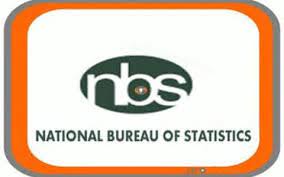The National Bureau of Statistics (NBS) has reported a decline in Nigeria’s commodity terms of trade (ToT) by 0.12 percentage points in the first quarter of 2024 (Q1’24), despite an increase in the value of imports by 0.51 percentage points during the same period.
Terms of trade (ToT), defined as the ratio between a country’s export prices and its import prices, is a crucial economic indicator. An increase in ToT signifies that the value of exports is rising relative to the value of imports, allowing a country to afford more imports for the same value of exports. Conversely, a decrease indicates a deterioration in trade conditions.
The NBS detailed the monthly ToT figures for Q1 2024, with the All-Commodity ToT standing at 101.89% in January, 101.77% in February, and 101.75% in March. This sequential decline reflects a slight weakening in Nigeria’s trade position. Specifically, the All-Commodity Group ToT decreased by 0.16 percentage points in February but saw a marginal increase of 0.03 percentage points in March, culminating in an overall decrease of 0.12 percentage points from January to March 2024.
During the same period, both the all-group export and import indices experienced a 0.39% increase. This indicates that while both export and import values grew, the rate of increase in import prices outpaced that of exports, leading to the observed decline in ToT.
The NBS highlighted that the All-Region Export Index, which tracks the value of exports across various regions, also increased by 0.39% between January and March 2024. This growth in export value, however, was insufficient to offset the faster rise in import costs.
The rise in import values by 0.51 percentage points suggests increased domestic consumption or investment in foreign goods and services, which could be attributed to various economic factors, including currency fluctuations, increased demand, or policy changes affecting trade.
Economists and policymakers are closing monitoring these developments, as sustained declines in terms of trade could impact Nigeria’s economic stability, affecting everything from currency valuation to trade policy decisions. The data underscores the need for strategies to boost export competitiveness and manage import costs to improve the country’s trade balance.















